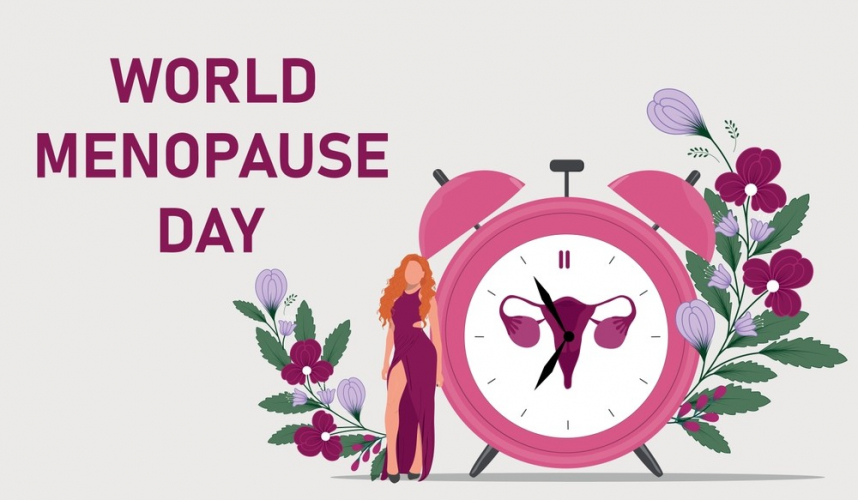
Menopause is a natural biological process marking the end of a woman’s menstrual cycle and fertility, typically occurring between the ages of 45 and 55. It is diagnosed after a woman has gone 12 months without a menstrual period.
The phase leading up to menopause is called perimenopause, during which hormone levels fluctuate, leading to symptoms like irregular periods, mood changes, and hot flashes. After menopause, women enter the postmenopausal phase, during which oestrogen levels are significantly lower, often resulting in additional health concerns such as osteoporosis and heart disease.
The symptoms of menopause can vary widely among women, from mild to severe. Common physical symptoms include hot flashes, night sweats, vaginal dryness, weight gain, and sleep disturbances. Emotional symptoms may include anxiety, irritability, and depression. For many women, these symptoms can significantly disrupt daily life. To raise awareness about menopause and support women in understanding and managing this transition in life, World Menopause Day is annually observed on October 18.
Theme for 2024
According to the International Menopause Society, the theme for World Menopause Day 2024, "Menopause Hormone Therapy," emphasises the role of MHT in managing menopausal symptoms and improving long-term health outcomes for women. Menopause Hormone Therapy, also known as Hormone Replacement Therapy (HRT), involves the use of oestrogen or a combination of oestrogen and progesterone to relieve common symptoms of menopause such as hot flashes, night sweats, vaginal dryness, and mood swings.
Research says that MHT has been shown to offer significant benefits for women, including reducing the risk of osteoporosis, and heart disease, and improving overall quality of life during menopause. However, there are also risks associated with the therapy, such as an increased risk of certain cancers, which is why women must make informed decisions based on personalised medical advice.
History of World Menopause Day
World Menopause Day was established in 1984 by the International Menopause Society (IMS) in collaboration with the World Health Organization (WHO). Its primary goal has been to promote awareness about menopause and address the physical, emotional, and social challenges that women face during this period. Over the years, World Menopause Day has expanded to include educational campaigns, medical research, and public discussions that empower women to better understand and manage menopause.
Each year, the IMS releases a white paper or report focusing on a specific theme related to menopause, offering up-to-date scientific research, guidelines, and recommendations for healthcare professionals and women alike. This annual observance has become a vital platform for breaking the silence around menopause, reducing stigma, and promoting open conversations about women’s health.
Significance of World Menopause Day
World Menopause Day plays a crucial role in breaking down the stigma surrounding menopause and encouraging women to seek support and treatment. Many women feel isolated or embarrassed about discussing menopause, leading to unnecessary suffering and lack of access to treatments like MHT. This day encourages open dialogue between women and healthcare providers, ensuring that women are aware of their options and feel empowered to make choices that improve their quality of life.
By focusing on MHT in 2024, the IMS aims to address common misconceptions and provide clear information on how hormone therapy can be a safe and effective option for many women. The day also highlights the importance of personalised healthcare, as the decision to use MHT should be based on a woman’s medical history, symptoms, and risk factors.
World Menopause Day 2024, with its focus on Menopause Hormone Therapy, is a reminder that menopause is a significant life transition that requires attention, support, and education. By raising awareness about the benefits and risks of MHT, the day empowers women to make informed decisions about their health. As society becomes more open to discussing menopause, World Menopause Day continues to play an essential role in improving the lives of women worldwide.
